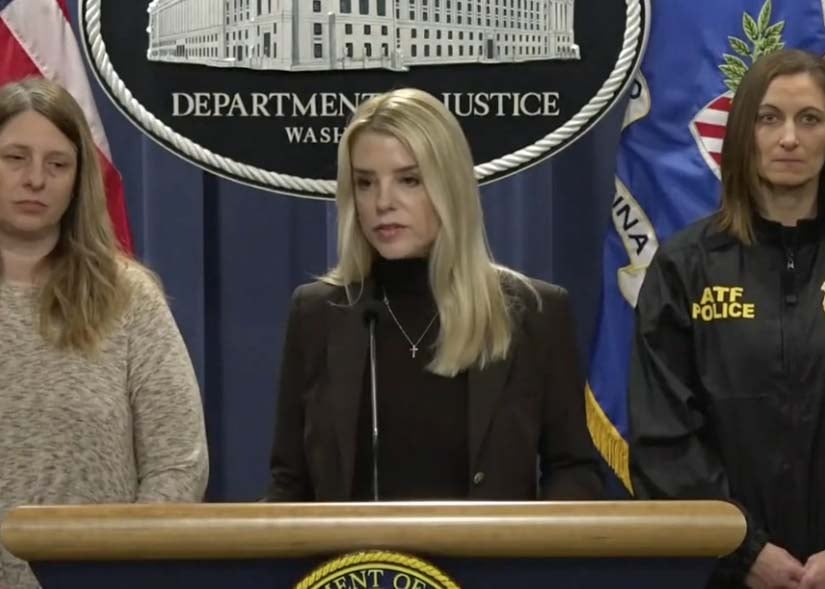TRENTON, NJ — The U.S. Department of Justice (DOJ) has filed lawsuits against the governors of Illinois and New York, as well as New York Attorney General Letitia James, over state policies that allegedly obstruct federal immigration enforcement. The legal actions could set a precedent, with New Jersey now under scrutiny for similar policies.
Attorney General Pam Bondi announced the lawsuits against Illinois Governor J.B. Pritzker, New York Governor Kathy Hochul, and James, citing state laws that limit cooperation between local law enforcement and federal immigration authorities. “This is a new DOJ. We sued Illinois. New York did not listen, now you’re next,” Bondi said.
Illinois’ Trust Act prevents local law enforcement from detaining individuals solely on immigration detainers unless they have been convicted of specific crimes. New York’s Green Light Law allows undocumented immigrants to obtain driver’s licenses and limits information sharing with immigration officials. The DOJ argues that these policies hinder federal immigration enforcement.
New Jersey, under Governor Phil Murphy and Attorney General Matt Platkin, has enacted similar measures, barring police from inquiring about immigration status during routine interactions and restricting state resources from being used for immigration enforcement. Murphy’s public comments on housing undocumented immigrants have also drawn political criticism.
New Jersey also has an Immigrant Trust Directive. New Jersey’s Attorney Generals have also enacted several directives for politically appointed prosecutors.
With legal challenges underway in Illinois and New York, New Jersey could be the next battleground in the DOJ’s crackdown on state immigration policies.
New Jersey’s Immigrant Trust Directive (ITD), issued in 2018 and revised in 2019, restricts state, county, and local law enforcement from assisting U.S. Immigration and Customs Enforcement (ICE) in civil immigration enforcement. The directive aims to build trust between law enforcement and immigrant communities by ensuring victims and witnesses feel safe reporting crimes.
The ITD prohibits police from stopping, questioning, arresting, or detaining individuals based solely on immigration status. Officers also cannot participate in ICE operations or provide ICE access to local law enforcement resources. Correctional officers cannot allow ICE to interview detainees without their written consent or hold individuals past their release time solely due to an ICE detainer request. Prosecutors are barred from using immigration status to challenge witness credibility or seek pretrial detention.
With lawsuits filed against Illinois and New York for similar policies, the DOJ may now focus on New Jersey’s regulations. Attorney General Pam Bondi has signaled a tough stance on state-level immigration protections, raising questions about whether New Jersey will be the next target of federal legal action.
